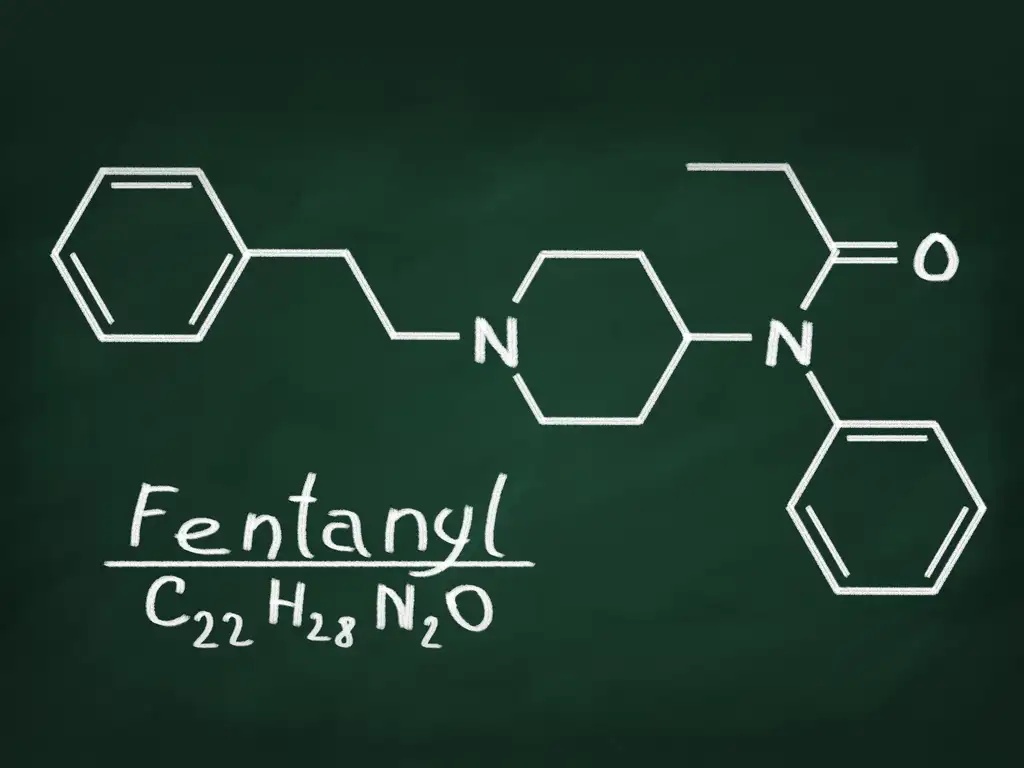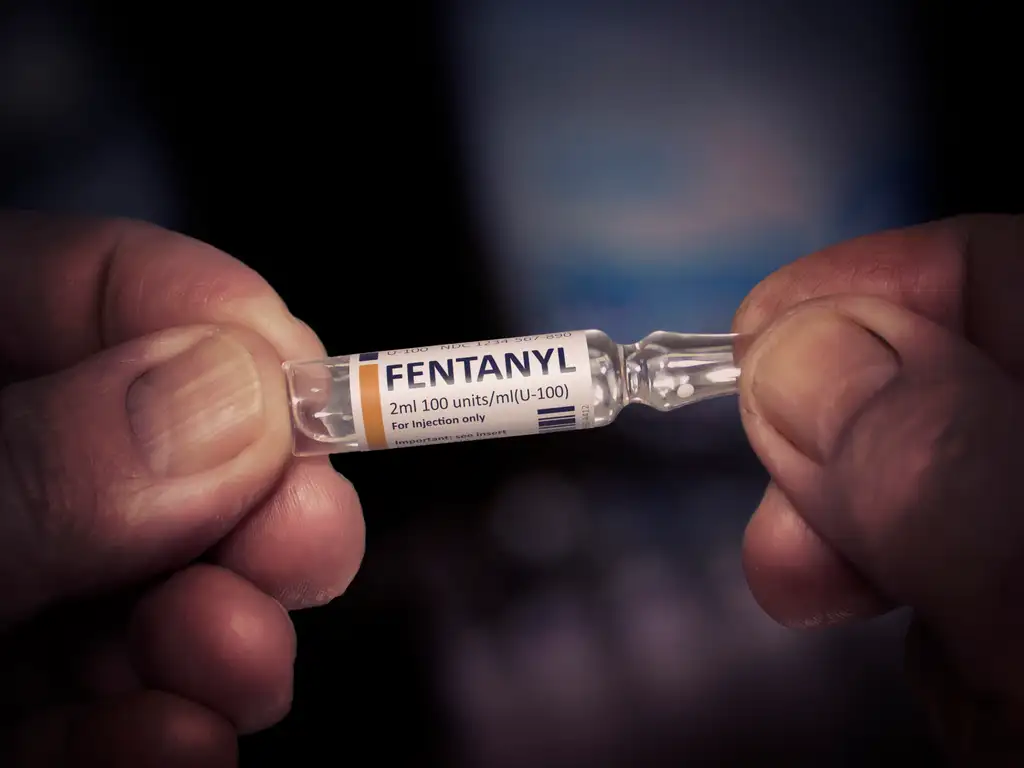Fentanyl is a powerful synthetic opioid that has seen an alarming rise in usage. As more and more people use this prescription drug for pain relief or recreational purposes, it’s essential to understand the potential risks and dangers associated with taking this medication.
In this blog post, we’ll take a closer look into what exactly fentanyl is, how it works, some possible side effects of using the drug, and why it is causing overdose deaths even in small doses.
No matter if you’re actively using pharmaceutical fentanyl, fentanyl patches, illicit drugs including fentanyl, with alcohol or other drugs, or simply curious about it for educational treatments — we hope that delving into the facts behind one of America’s most abusive drugs will help you make conscious decisions surrounding its use.
What Is Fentanyl and Why Is It Used?
Prescription opioids are medications designed to manage severe pain. They target opioid receptors in the brain, which can dull pain signals and create feelings of euphoria.
Individuals suffering from chronic pain, such as cancer or a terminal illness, often take synthetic opioids such as fentanyl to manage their symptoms. These drugs provide quick relief and have fewer side effects than other medications.
Fentanyl, a powerful opioid, is often prescribed as a patch or lozenge that can be placed under the tongue. Illicitly manufactured fentanyl, often created in illegal labs, can come in various forms, including tablets and powder. Sometimes, illicit fentanyl is mixed with other substances, making the drug even more deadly.
Fentanyl abuse is becoming increasingly prominent due to its potency and ability to activate opioid receptors in the brain. As such, it has become a major player in the growing opioid epidemic across the U.S., especially in Florida.
Signs of Fentanyl Misuse and Abuse
Misusing and abusing fentanyl can lead to serious health consequences. Similar to other opioid analgesics, common signs and symptoms of fentanyl abuse include:
- Drowsiness
- Slowed breathing or difficulty breathing
- Sedation or confusion
- Nausea and vomiting
- Shallow respiration
- Weight loss
- Slow heart rate
- Pinpoint pupils
- Seizure
- Gastrointestinal issues
In severe cases, fentanyl can even lead to death due to overdose.
Fentanyl Drug Abuse in the US
Since illicitly manufactured fentanyl is becoming more widely available, the rate of fentanyl overdose deaths has skyrocketed. During the 12 months from May 2020 to April 2021, over 100,000 U.S. citizens died due to drug overdose. Of those deaths, an alarming two-thirds were linked to synthetic opioids like fentanyl or its analogs.
In Florida, this trend is even more pronounced. In 2020, the number of fatalities from fentanyl and other opioids in Florida amounted to 6,089 individuals. This makes it a hazardous opioid drug with the potential to bring deadly consequences and addictions.
Signs and Symptoms of an Opioid Overdose
Drug overdoses can be fatal and require immediate medical attention. The following are the signs and symptoms of a fentanyl related opioid overdose:
- Unresponsiveness, even when being shaken or yelled at
- Slow or shallow breathing
- Respiratory depression
- Vomiting or gurgling sounds
- Cold, clammy skin
- Lips and nails that turn bluish-gray
- Pupils that are smaller than usual
- Loss of consciousness
Call 911 immediately and get the person to an emergency department.
Treatment Options for Fentanyl Addiction
It may be tempting to stop using fentanyl on your own, but you should seek the help of an experienced medical professional. Quitting this drug suddenly can cause adverse effects or withdrawal symptoms.
Below are treatment options that may be available.
Inpatient Addiction Program
Most opioids, including fentanyl, can be safely and effectively treated in an inpatient addiction detox and residential program. In this setting, a patient’s detox process will be monitored around the clock by experienced medical professionals. This is often the best way to ensure safety once a person stops taking fentanyl and other drugs.
Medications such as buprenorphine can be used during detox from fentanyl, heroin, and other prescription opioids . These medications reduce opioid withdrawal symptoms and cravings, allowing you to focus on recovery in a safe environment.
Outpatient Addiction Program
Outpatient programs provide more flexibility and may be the best option for those with milder opioid addictions or those with other commitments such as work or school. Patients usually participate during the day or after work in an outpatient program.
12 Step Support Groups
12 step support groups can be a valuable by providing individuals support as they recover from opioid addiction. 12 step support groups are available at no cost and allow you to connect with others who have gone through similar experiences.
Groups such as Narcotics Anonymous (NA) can provide an invaluable source of support, structure, and accountability as you work toward recovery.
Dual Diagnosis and Co-occurring Disorders
Dual diagnosis treatment integrates addiction and mental health treatment for those struggling. This type of care can help patients address the underlying issues fueling their drug use, such as depression or anxiety.
Closing Thoughts
Fentanyl is a potent drug that should not be taken lightly or abused in any way. The dangers associated with using it are plentiful and can result in complicated medical issues and even death. It is crucial to have a clear understanding of this highly addictive drug before making decisions about using it, either recreationally or for medical purposes.
In Florida, fentanyl has infiltrated the drug supply. Counterfeit pills and transdermal patches are causing overdose deaths. Turning Point of Tampa has been helping those wanting to quit their alcohol and drug use since 1987. We believe that people addicted can change the course of their life and find a new way to live.
Turning Point of Tampa offers a continuum of care for addiction, dual diagnosis, and eating disorders. Fentanyl as a prescription or illegal drug can be overcome if a person is ready to get sober.
Please call Turning Point of Tampa if you are wanting to live drug free. We look forward to helping you find a life free from addiction.
Sources:
https://www.cdc.gov/stopoverdose/fentanyl/index.html
https://nida.nih.gov/publications/drugfacts/fentanyl
https://www.dea.gov/factsheets/fentanyl
https://www.cdc.gov/opioids/basics/fentanyl.html
https://www.cdc.gov/mmwr/volumes/70/wr/mm7050e3.htm?s_cid=mm7050e3_w
https://adf.org.au/drug-facts/fentanyl/







